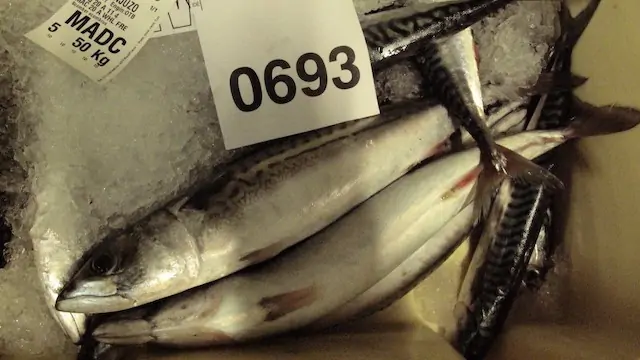ICES has published its advice on North-east Atlantic pelagic fisheries, recommending that mackerel should not exceed 794,920 tonnes – a 6.7% reduction from the 2021 catch advice.
Advice for the 2022 Atlanto-Scandian herring catch is no more than 598,588 tonnes, an 8% reduction from the 2021 catch advice, while the advised 2022 catch for blue whiting is to not exceed 752,736 tonnes; a 19% reduction from the 2021 catch advice.
Biomass for both species are reported to be showing positive signs, but current fishing pressure is above a level that will ensure long term sustainability of the stocks.
While coastal states agreed on TAC levels, they remain unable to resolve an ongoing dispute over how to split the TAC. Catches significantly exceed advice, and this has already resulted in the loss of MSC certification for all three main pelagic species fished in the north-east Atlantic. The mackerel TAC for 2021 is being exceeded by 42%, Atlanto-Scandian herring by 39% and blue whiting by 30%.
‘This is having major implications for businesses. The mismanagement of these fisheries has so far resulted in the loss of MSC certification. Loss of certification implies that fisheries are no longer publicly recognised against well-known independent certification programmes for fisheries sustainability’ stated NAPA, an international pressure group of retailers and suppliers with a strong interest in returning to more sustainable catch levels and management.
‘Furthermore, blue whiting has lost MarinTrust certification – which is conditional on MSC certification. The knock-on effect on the biggest customer of the fishery, salmon aquaculture, is a significant step back in responsible business practice and will impact retailer and foodservice companies, as well as consumers, who demand sustainable marine ingredients in feed.’
‘We therefore urge fishing nations to set aside national interests and commit to sustainable management measures for these stocks at the upcoming Coastal States meeting,’ said MSC regional director for Northern Europe Erin Priddle
‘Sustainable, well managed fisheries not only safeguard ocean biodiversity, they are also more resilient to climate change, providing greater economic certainty. Although individual fisheries have a role to play, international cooperation is essential to secure adequate protection of these stocks. Governments have a responsibility on behalf of the public to safeguard our oceans for current and future generations.’









